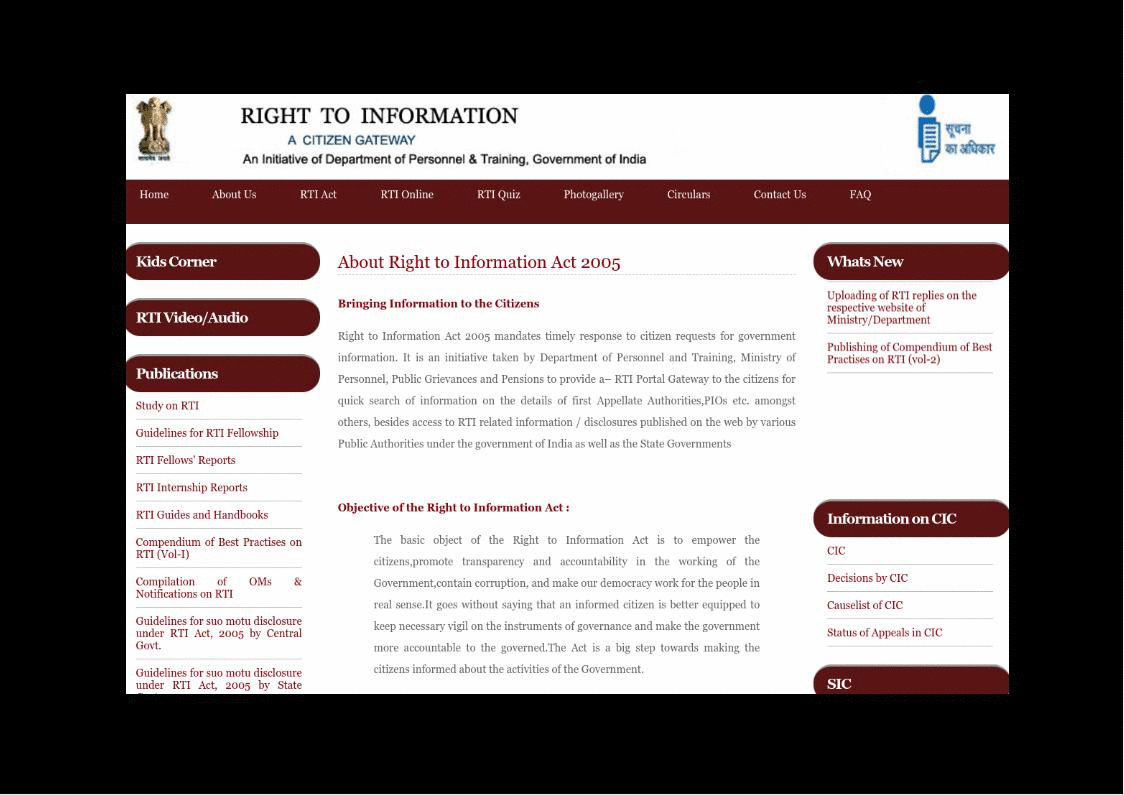The Right to Information Act of India: Why is it important?

The Right to Information (RTI) Act 2005 is a privileged feature for the citizens' queries.
It has become common practice to quote the Right to Information (RTI) Act 2005 when reporting on political, financial, social, and various matters connected to the lives of Indian citizens.
The RTI Act 2005 has been used many times by many organizations and persons to submit inquiry requests to government departments.
An excerpt from the RTI website is displayed below.
"Right to Information Act 2005 mandates timely response to citizen requests for government information. It is an initiative taken by Department of Personnel and Training, Ministry of Personnel, Public Grievances and Pensions to provide a– RTI Portal Gateway to the citizens for quick search of information on the details of first Appellate Authorities,PIOs etc. amongst others, besides access to RTI related information/disclosures published on the web by various Public Authorities under the government of India as well as the State Governments."
The citizens of India have the right to seek information from the government.
The government sometimes selectively removes some information from the RTI Act 2005 privilege!
The government may protect/hide certain information that it decides should not be disclosed to the citizens' inquiries.
For example, the recent Electoral Bonds of India is a financial scam that the government tried to hide by creating exceptions for its disclosure.
However, the five-panel judge's bench of the Supreme Court of India overruled all the government's hiding tactics in the Electoral Bonds scheme of the State Bank of India.
In a landmark judgement, the Supreme Court of India declared the Electoral Bonds scheme unconstitutional.

Screenshot Source
The citizens have the right to seek justice if the RTI Act 2005 feature fails.
The current case of the Electoral Bonds raised questions on which matters may be kept away from the reach of the RTI Act 2005.
Specifically, in some special subjects of national security that concern the sovereignty of the nation, there could be selective options for protecting/hiding data from the public's viewing/accessing.
Otherwise, in all subjects of financial and corruption matters, the government has no right to hide data from the citizens asking for disclosure for public viewing.
The citizens' forum can go to court for releasing data connected to financial matters allegedly connected to corruption and other evil charges.
<> Originally published in my LinkedIn Newsletter "Learning Times Technology."
------------
About me
I am a researcher and contribute to the overlapping areas of STEAM (Science, Technology, Engineering, Arts, and Mathematics). I am an active user and promoter of GNU/Linux, free and open-source software. I develop cybersecurity and information security solutions, specifically graphical authentication security.
Cheers!
Text Copyright © 2024 Debesh Choudhury — All Rights Reserved
Join me at
YouTube, Twitch, CashRain, Odysee, LinkedIn, Twitter, Publish0x, ReadCash, and Facebook.
Earn passive income by sharing unused Internet bandwidth with Grass, Honeygain and Peer2Profit.
Cover Image: I created a GIF using a screenshot from the RTI website and my texts.
All other images are either drawn/created/screenshots by myself or credited to the respective artists/sources.
Disclaimer: All texts are mine and original. Any similarity and resemblance to any other content are purely accidental. The article is not advice for life, career, business, or investment. Please do your research before you adopt any options.
Unite and Empower Humanity.
#india #righttoinfomration #act #india #government #judiciary #citizensright #politics
April 04, 2024
